« Return to all search results
Title Search Results

This Edgar Award winner is a “raucously funny” novel of crime, con artists, and a poor sucker caught in the middle, by the author of the Dortmunder series (Kirkus Reviews). If there is a scam operating anywhere, sooner or later it will find Fred Fitch. The pure-hearted, gullible man seems to get taken every time he turns around. At this point, he’s been ripped off so many times he’s got a regular contact at New York’s bunco squad. Now Fred’s late Uncle Matt, who he never even heard of before, has willed him $317,000. Along with the inheritance comes the devoted Gertie Divine, Uncle Matt’s old friend who is all too willing to become Fred’s new friend—and a host of other mysterious characters who are willing to get chummy with Fred in hopes of getting their hands on that fortune. But soon it’s not just Fred’s money that’s in danger but his life, in this “high-spirited farce” (The Washington Post) by the master of comic crime fiction—starring a character the New York Times called “unforgettable . . . Everybody’s favorite loser.” “Masterful.” —Publishers Weekly
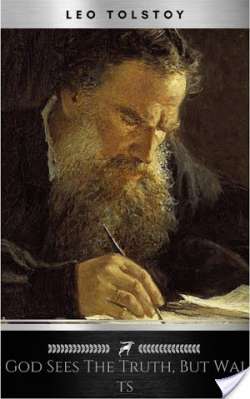
"God Sees the Truth, But Waits" (Russian: "Бог правду видит, да не скоро скажет", "Bog pravdu vidit da ne skoro skazhet") is a short story by Russian author Leo Tolstoy first published in 1872. The story, about a man sent to prison for a murder he didn't commit, takes the form of a parable of forgiveness. English translations were also published under titles "The Confessed Crime" and "Exiled to Siberia". The concept of the story of a man wrongfully accused of murder and banished to Siberia also appears in one of Tolstoy's previous works, War and Peace, during a philosophical discussion between two characters who relate the story and argue how the protagonist of their story deals with injustice and fate.
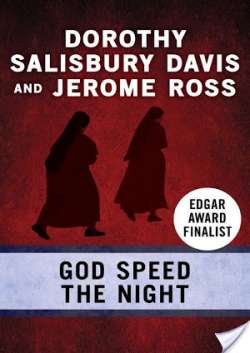
Edgar Award Finalist: Hailed by the New York Times as “a book you will not readily forget,” this World War II adventure tale of a nun who risks her life to help a Jewish couple escape Nazi-occupied France is the collaborative creative effort of Grand Master of crime fiction Dorothy Salisbury Davis and award-winning television writer Jerome Ross, It is harvest season in St. Hilaire, and for those who take their living from the land, it should be a joyous time. But in the fall of 1943, there is no joy in France. Paris has fallen, the Vichy government is collaborating with the Germans, and the Gestapo roam the countryside, conscripting French men to toil in faraway German factories. For Sister Gabrielle, a novice in the local convent, the occupation tries her faith as nothing has before. But she is about to get an opportunity to stand up to evil in a way that few of her countrymen have dared. Marc and Rachel Daridan arrive in St. Hilaire just a few steps ahead of the secret police and throw themselves on the mercy of Sister Gabrielle and the other nuns at the Convent of Ste. Geneviève. In a time when doing right can mean death, this devout young woman takes on a risky, seemingly impossible challenge.

*Finalist for the National Book Award and the Kirkus Prize* *Instant New York Times Bestseller* *Named a Best Book of 2018 by NPR, The New York Post, BuzzFeed, Shelf Awareness, Bustle, and Publishers Weekly* An essential read for our times: an eye-opening memoir of working-class poverty in America that will deepen our understanding of the ways in which class shapes our country. Sarah Smarsh was born a fifth generation Kansas wheat farmer on her paternal side, and the product of generations of teen mothers on her maternal side. Through her experiences growing up on a farm thirty miles west of Wichita, we are given a unique and essential look into the lives of poor and working class Americans living in the heartland. During Sarah’s turbulent childhood in Kansas in the 1980s and 1990s, she enjoyed the freedom of a country childhood, but observed the painful challenges of the poverty around her; untreated medical conditions for lack of insurance or consistent care, unsafe job conditions, abusive relationships, and limited resources and information that would provide for the upward mobility that is the American Dream. By telling the story of her life and the lives of the people she loves with clarity and precision but without judgement, Smarsh challenges us to look more closely at the class divide in our country. A beautifully written memoir that combines personal narrative with powerful analysis and cultural commentary, Heartland examines the myths about people thought to be less because they earn less. “A deeply humane memoir that crackles with clarifying insight, Heartland is one of a growing number of important works—including Matthew Desmond’s Evicted and Amy Goldstein’s Janesville—that together merit their own section in nonfiction aisles across the country: America’s postindustrial decline...Smarsh shows how the false promise of the ‘American dream’ was used to subjugate the poor. It’s a powerful mantra” (The New York Times Book Review).
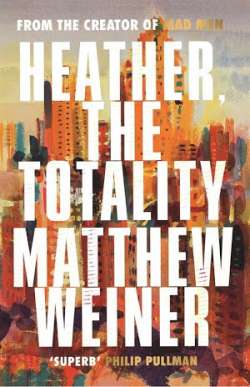
The Breakstone family arrange themselves around their daughter Heather, and the world seems to follow: beautiful, compassionate, entrancing, she is the greatest blessing in their lives of Manhattan luxury. But as Heather grows - and her empathy sharpens to a point, and her radiance attracts more and more dark interest - their perfect existence starts to fracture. Meanwhile a very different life, one raised in poverty and in violence, is beginning its own malign orbit around Heather. Matthew Weiner - the creator of Mad Men - has crafted an extraordinary first novel of incredible pull and menace. Heather, The Totality demonstrates perfectly his forensic eye for the human qualities that hold modern society together, and pull it apart.
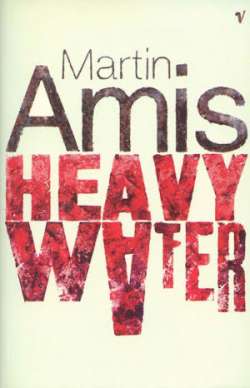
In Martin Amis's short stories whole worlds are created - or inverted. In 'Straight Fiction', everyone is gay, apart from the beleaguered 'straight' community; in 'Career Move', screenplay writers submit their works to little magazines, while poets are flown first-class to Los Angeles; in 'The Janitor of Mars', a sardonic robot gives us some strange news about life in the solar system. In 'Let Me Count the Times' a man has a mad affair with himself. 'Heavy Water', portrays the exhaustion of working-class culture, and 'State of England' its weird resuscitation. And in 'The Coincidence of the Arts' an English baronet becomes entangled with an African-American chess hustler.
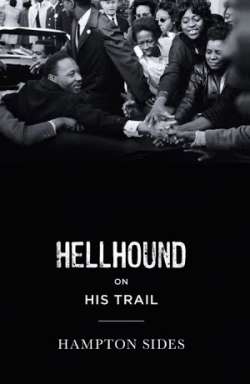
Hellhound on His Trail is the story of two very different men whose lives catastrophically interweaved over the course of some nine months in the late 1960s: one was a thief and con man called James Earl Ray, the other one of the greatest American figures of the twentieth century, Martin Luther King Jr. Hampton Sides follows in Ray's footsteps as he escapes from prison, creates a new identity for himself and becomes convinced of his mission to kill King. Hellhound on His Trail is equally the story of King himself in his last months, fighting to keep his ideals alive in the face of intensive FBI surveillance and his own exhausted frustration. With relentless storytelling drive, Sides follows Ray and King as they crisscross the country, one stalking the other, until the fateful moment, on 4 April 1968 at a Memphis hotel, when the drifter finally caught up with his prey. Nationwide riots were sparked by the assassination, followed by the largest manhunt in American history.

The #1 True Crime Bestseller of All Time—7 Million Copies Sold In the summer of 1969, in Los Angeles, a series of brutal, seemingly random murders captured headlines across America. A famous actress (and her unborn child), an heiress to a coffee fortune, a supermarket owner and his wife were among the seven victims. A thin trail of circumstances eventually tied the Tate-LeBianca murders to Charles Manson, a would-be pop singer of small talent living in the desert with his "family" of devoted young women and men. What was his hold over them? And what was the motivation behind such savagery? In the public imagination, over time, the case assumed the proportions of myth. The murders marked the end of the sixties and became an immediate symbol of the dark underside of that era. Vincent Bugliosi was the prosecuting attorney in the Manson trial, and this book is his enthralling account of how he built his case from what a defense attorney dismissed as only "two fingerprints and Vince Bugliosi." The meticulous detective work with which the story begins, the prosecutor's view of a complex murder trial, the reconstruction of the philosophy Manson inculcated in his fervent followers…these elements make for a true crime classic. Helter Skelter is not merely a spellbinding murder case and courtroom drama but also, in the words of The New Republic, a "social document of rare importance." Some images in this ebook are not displayed due to permissions issues.
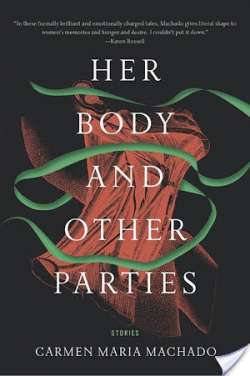
Finalist for the National Book Award for Fiction “[These stories] vibrate with originality, queerness, sensuality and the strange.”—Roxane Gay “In these formally brilliant and emotionally charged tales, Machado gives literal shape to women’s memories and hunger and desire. I couldn’t put it down.”—Karen Russell In Her Body and Other Parties, Carmen Maria Machado blithely demolishes the arbitrary borders between psychological realism and science fiction, comedy and horror, fantasy and fabulism. While her work has earned her comparisons to Karen Russell and Kelly Link, she has a voice that is all her own. In this electric and provocative debut, Machado bends genre to shape startling narratives that map the realities of women’s lives and the violence visited upon their bodies. A wife refuses her husband’s entreaties to remove the green ribbon from around her neck. A woman recounts her sexual encounters as a plague slowly consumes humanity. A salesclerk in a mall makes a horrifying discovery within the seams of the store’s prom dresses. One woman’s surgery-induced weight loss results in an unwanted houseguest. And in the bravura novella “Especially Heinous,” Machado reimagines every episode of Law & Order: Special Victims Unit, a show we naïvely assumed had shown it all, generating a phantasmagoric police procedural full of doppelgängers, ghosts, and girls with bells for eyes. Earthy and otherworldly, antic and sexy, queer and caustic, comic and deadly serious, Her Body and Other Parties swings from horrific violence to the most exquisite sentiment. In their explosive originality, these stories enlarge the possibilities of contemporary fiction.
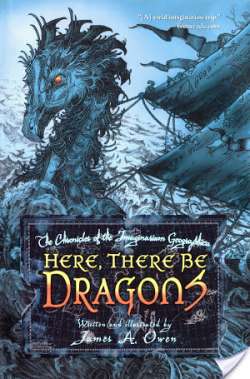
The year is 1917. Following the sudden death of his Professor, a young man and his two companions are approached by a strange man who gives them a book to safeguard. This book, the Imaginarium Geographica, is the reason the Professor was killed, and now, they too are in mortal danger. Chased by the ferocious Wendigo, half-man half-werewolf creatures, the three companions seek refuge on a ship - a ship that leads them to the extraordinary lands of myth and legend mapped in the precious book they carry. As their adventure unfolds we learn that the friends are in fact C.S Lewis, J.R.R Tolkien and Charles Williams - and as they discover that events in the known world mirror those in the imaginary realm, they come to realise the importance of the Imaginarium Geographica , and if not protected, there will be no peace from the war that rages in our world.
